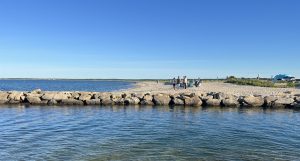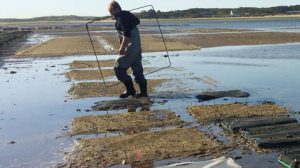Search results for: Canadian Online Pharmacy ⭐ www.HealthMeds.online ⭐ Online Buy Kamagra Canada - Is Kamagra Legal In Canada
Teacher Workshop: April 17, 2015
Teacher Workshop: April 17, 2015 Seals on Cape Cod, Seals as Sentinels Presenters Dr. Rebecca Gast http://www.whoi.edu/hpb/Site.do?id=585 Dr. Andrea Bogomolni http://www.whoi.edu/profile/abogomolni/ Schedule: 8:45-9:15 Arrive, pick up parking passes, and park in School St. lot, walk to WHOI Exhibit Center Breakfast: pastries, coffee, juice 9:30 – Quick introduction to WHOI, Sea Grant, and Exhibit…
Read MoreTeacher Workshop: October, 29 2019-Coastal Wetlands
Carbon Cycling in Coastal Wetlands Presenters: Dr. Anne Giblin, Marine Biological Laboratory (MBL) Senior Scientist – Rising Seas and the Fate of Coastal Salt Marshes Dr. Meagan Eagle Gonneea, U.S. Geological Survey Research Scientist – Blue Carbon in Our Backyard: Coastal Wetlands, Climate, Management, and Markets Date: October 2019 Lesson Plans…
Read MoreScience and Economics in the Management of an Invasive Species
Science and Economics in the Management of an Invasive Species Hoagland, P. and D. Jin BioScience, Vol. 56, No. 11, pp. 931-935, 2006 WHOI-R-06-007
Read MoreWHOI-W-05-001 Whitlach, B. International Inv
WHOI-W-05-001 Whitlach, B. International Inv
Read MoreSuggested Educational Resources For Use During School Closures
Educational resources used during school closures Woods Hole Sea Grant is pleased to be able to provide this list of educational resources to assist families and teachers with ideas and on-line programming for use during the unique school situations in response to COVID-19. IMPORTANT: Please check with state and/or local officials for the latest information…
Read MoreMartha’s Vineyard Coastal Conference 2024
Martha’s Vineyard Coastal Conference October 1, 2024 9:30 a.m. – 4:30 p.m. The free conference will be held at the Martha’s Vineyard Film Society 79 Beach Rd Vineyard Haven, Mass. 02568 Contact Shelly McComb, WHOI Sea Grant and Cape Cod Cooperative Extension Islands Conference Homepage & Archive AGENDA 9:00 a.m. – Welcome and Check…
Read MoreSalt Marshes: Biological Controls of Food Webs in a Diminishing Environment
Salt Marshes: Biological Controls of Food Webs in a Diminishing Environment Valiela, I., D. Rutecki, and S. Fox Journal of Experimental Marine Biology and Ecology, Vol. 300, pp. 131-159, 2004 WHOI-R-04-003
Read MoreSea Grant Two if by Sea Vol. 8 No. 2 A joint n
Sea Grant Two if by Sea Vol. 8 No. 2 A joint n
Read MoreStudy Provides Measurement of Nitrogen Removal by Local Shellfish
Towns along Cape Cod and the Islands are looking to shellfish not only as tasty culinary treats, but also for help cleaning up waters degraded by excess nitrogen in the region. While nitrogen is essential for all plants and animals, too much nitrogen in ponds and waterways—often caused by fertilizer runoff and septic tanks—can fuel…
Read MoreDGGE-based Detection Method for Quahog Parasite Unknown (QPX)
DGGE-based Detection Method for Quahog Parasite Unknown (QPX) Gast, R.J., E. Cushman, D.M. Moran, K.R. Uhlinger, D. Leavitt, and R. Smolowitz Diseases of Aquatic Organisms, Vol. 70, pp. 115-122, 2006 WHOI-R-06-003
Read More

